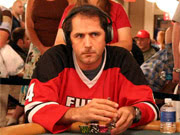Newest developments

Professional poker player Phil Gordon was one of many defendants named in the class action lawsuit against Full Tilt Poker, and for him, at least, there’s some good news. Gordon has been voluntarily dismissed from the charges that were filed against him and several others associated with Full Tilt Poker. This means that he has, to the satisfaction of the court, proven that he has never been a part of FTP decision making and never lived within the jurisdiction of the suit, and this opens the door for others to find their way out of the lawsuit.
An order has been issued to all of the defendants to demonstrate their lack of involvement in the suit, but only Phil Gordon has responded so far. The deadlines for the rest of the defendants fall in the beginning of August, with Phil Ivey required to reply by the 8th and John Juanda’s response due on the first of the month.
About RICO
The Racketeer Influenced and Corrupt Organizations Act was originally developed as a means of taking down organized crime syndicates, especially the Mafia. In the past, many members of organized crime groups were exempt from prosecution because there was no evidence connecting them to a crime in a way that would make them culpable for it. Telling someone to commit a crime isn’t the same as committing it, after all, and many leaders in the world of organized crime hid behind this loophole until the RICO Act was created in 1970 as part of the Organized Crime Control Act.
Does Full Tilt Fall Under RICO?
Whether or not Full Tilt’s actions fall under the umbrella of racketeering depends, largely, on the case that the United States Justice Department filed against the corporation on Black Friday. The US government gave Full Tilt the boot in April on charges of illegal gambling, bank fraud, and money laundering, and if these charges hold up in court, Full Tilt most assuredly falls under the purview of racketeering.
The US government and civil case aren’t stopping there, though– they accuse Full Tilt of having a pattern of racketeering activity. If the Department of Justice wins their case, in which they seek a civil forfeiture, all the Full Tilt funds become the property of the DoJ, and Full Tilt is asset-less.
How does this affect the mysterious investors?
The alleged investors are apparently planning to make an appearance at the Full Tilt hearing with the Alderney Gambling Control Commission (AGCC) to help some sort of agreement be reached, but people all over the world are wondering: Why would anyone want to buy Full Tilt now?
Well, the European investors are apparently only interested in purchasing the company’s European assets, which means that the company would gain a lot of money from a partial sale (although how much is still to be determined, but they’re probably not getting the best deal, as the investors and the US government currently have them over a barrel) and can potentially take those assets and deal with the Department of Justice. There’s a decent chance that both the government and the class action plaintiffs can be appeased if American players get their money back.